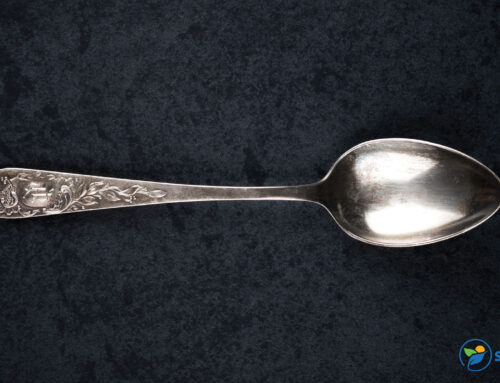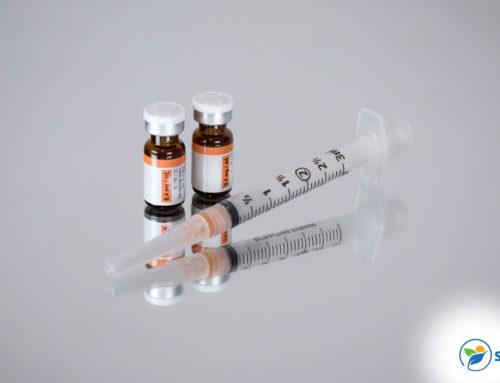The concept of combining different substances to feel the effects of both isn’t a new one. For years, movies and shows have depicted characters using multiple substances. For example, you may have seen characters mix alcohol with various drugs or start smoking pot while already experiencing molly effects from ecstasy. Ultimately, using multiple drugs at once (known as polysubstance use) is fairly common — however, that doesn’t make it safe.
In 2019, almost half of drug overdose deaths resulted from multiple drugs. One common type of polysubstance use is combining marijuana with molly, or ecstasy. In this article, we’ll explore the different effects of marijuana and ecstasy, what happens when they’re combined and why mixing them is a concern.
The Effects of Marijuana
Marijuana, commonly referred to as weed or pot, is a drug derived from the Cannabis sativa plant. It’s used for its psychoactive (mind-altering) effects, which are caused by an ingredient called tetrahydrocannabinol (THC). To experience the effects, THC must first enter the bloodstream — this can be achieved by either smoking the plant or ingesting it with food. Once the drug enters the system, it may cause the following symptoms:
- Heightened euphoria
- Increased sociability
- Sedated feeling
- Anxiety and restlessness
- Increased appetite
- Poor judgment and coordination
- Poor short-term memory
- Paranoia and confusion
- Bloodshot eyes
- Dry mouth and nausea
- Increased heart rate and blood pressure
Those who smoke marijuana may also experience common side effects of smoking, such as coughing, bad breath and increased risk of bronchitis. The longevity of these effects varies depending on how it’s ingested — generally, effects last up to 3 hours after smoking marijuana and for several hours after consuming it. People who are used to taking marijuana will typically experience less intense effects than those new to the drug.
Currently, marijuana is a Schedule I controlled substance that’s not approved by the U.S. Food and Drug Administration. Despite it being illegal on the federal level, several states — including Colorado, New York and Massachusetts — have legalized the drug. However, this doesn’t necessarily mean it’s safe to use. Long-term use can lead to psychological addiction, resulting in a marijuana dependency.
The Effects of Ecstasy and Similar Drugs
MDMA (3,4-methylenedioxy-methamphetamine), also referred to as ecstasy and molly, is a chemical compound that affects mood and behavior. It does this by boosting the activity of three brain chemicals: dopamine, norepinephrine and serotonin. While MDMA effects vary from person to person, they usually include some of the following:
- Improved mood
- Increased energy and pleasure
- High levels of empathy and friendliness
- Lack of awareness regarding time and surroundings
- Paranoia and confusion
- Higher heart rate and blood pressure
- Nausea and chills
- Blurred vision and dilated pupils
- Teeth grinding
- Muscle aches
Once ingested, the effects usually last for about 3 to 6 hours. A common question when it comes to taking the substance is: Can you smoke molly? While MDMA smoking is possible, it generally doesn’t produce the traditional molly effects. Instead, most people take MDMA in tablet or capsule form. Less commonly, it might be swallowed as a liquid or snorted as a powder.
The extent of effects may vary depending on factors like height, weight, how much of the drug is consumed and whether the person is used to the drug. Over time, ecstasy use can produce symptoms such as increased depression, anxiety, decreased appetite, sleep problems and memory issues.
As with marijuana, it’s possible to develop physical and psychological dependency on molly. Those who become addicted may experience withdrawal symptoms such as depression or fatigue if they try to stop using the substance.
Compounded Weed and Molly Effects
Because they improve mood and lower inhibitions, both weed and molly are commonly found in social settings (such as nightclubs). As a result, they’re often used together. According to one study, 90% to 98% of MDMA users also use cannabis.
As mentioned earlier, the main reason people might combine the drugs is to feel both weed and molly effects simultaneously. Some people may be trying to maximize euphoria, while others might want to prolong the effects. Either way, combining the two drugs can have serious, long-term consequences such as:
- Impaired memory: Marijuana interferes with short-term memory function, while prolonged MDMA use can negatively impact long-term memory.
- Mood disorders: Taking weed and molly together may heighten mental health problems like depression and anxiety.
- Cognitive deficits: In addition to poor memory, those who combine weed and molly may experience intense cognitive deficits such as poor judgment and increased confusion.
- Physical health issues: The negative physical symptoms associated with marijuana and molly (such as nausea and increased heart rate) may be heightened when the substances are combined.
- Low motivation: Over time, marijuana and ecstasy use can decrease motivation, causing the substance user to lose interest in relationships, obligations and hobbies.
Ultimately, combined weed and molly use can negatively affect physical and mental wellness. The more often they’re used, the more likely it is the user will develop a dependency on them. Once this happens, it’s often more difficult to stop using the substances.
Why Mixing Molly and Marijuana Is a Concern
In media, molly and marijuana use is often portrayed in fun party scenes. In reality, their effects aren’t limited to the occasional outing. Both drugs can seriously impact physical wellness, emotional mood and cognitive function — especially when compounded. Over time, those who combine the drugs may notice problems like poor memory, increased depression and lack of motivation, all of which interfere with day-to-day life.
At Sunlight Recovery, we realize how challenging it can be to resist drugs like molly and marijuana. We also believe that, with treatment, it’s possible to overcome substance use and regain control. If you’re struggling with drug dependency and looking for assistance, please contact us today. Our team of licensed clinical and medical professionals is devoted to helping people on their journey to sobriety.






